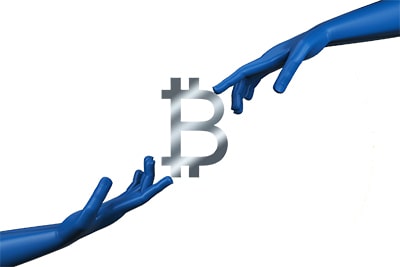Development of Blockchain Technology and NFTs in Singapore
“I love this stuff - bitcoin, ethereum, blockchain technology and what the future holds”. Abigail Johnson
 Blockchain technology lays a foundation for many cryptocurrencies. Singapore is rising as one of the leading blockchain development countries in the world. Since the birth of the first digital currency, Bitcoin, in 2008, blockchain technology has grown significantly in various fields. As one of Asia’s financial hubs, Singapore has also attracted a large range of software professionals and financial services involving blockchain technologies and nonfungible tokens. NFT marketplaces can be both gaming platforms for earning digital assets like Axie Infinity and trading platforms such as NBA TopShot or metaverse platforms like Decentraland and Earth 2 where you can buy and sell virtual properties.
Blockchain technology lays a foundation for many cryptocurrencies. Singapore is rising as one of the leading blockchain development countries in the world. Since the birth of the first digital currency, Bitcoin, in 2008, blockchain technology has grown significantly in various fields. As one of Asia’s financial hubs, Singapore has also attracted a large range of software professionals and financial services involving blockchain technologies and nonfungible tokens. NFT marketplaces can be both gaming platforms for earning digital assets like Axie Infinity and trading platforms such as NBA TopShot or metaverse platforms like Decentraland and Earth 2 where you can buy and sell virtual properties.
The Blockchain and NFT Technology
An NFT has a unique identifier representing an underlying tangible or intangible asset, such as a pair of limited-edition sneakers or a painting. Unlike fiat currencies and cryptocurrencies, each NFT is distinct from other NFTs and cannot be replicated. Each of them is represented by a certificate of ownership of the underlying property. In other words, when a buyer purchases an NFT, they are claiming sole ownership of it. The rights of NFT owners are recorded on associated smart contracts.
NFT-Related Regulations
Depending on the characteristics of an NFT, the NFT is governed by the Singapore Payment Services Act of 2019. It is identified as a digital payment token or the Securities and Futures Act if identified as the titles of securities. In these cases, licensing requirements will apply.
Securities Regulated by the Singapore FinTech Association
The Singapore FinTech Association does not specify whether NFTs constitute securities. The definition of securities covers any other product or class of products that may be prescribed. This allows to include NFT as a form of security, depending on the characteristics and purposes of a particular NFT. In general, securities are generally fungible such as shares, units in business trusts, and obligations of the companies. If an NFT represents partial ownership in a company, the prospectus and business requirements will apply.
Blockchain Development in Singapore
Education
Blockchain applications allow employers and universities to verify the qualifications of students or employees using smart contracts. A public higher education institution in Singapore called Ngee Ann Polytechnic uses blockchain to authenticate the Ngee Ann Polytechnic’s degrees. It is the first educational institute in Singapore to use blockchain to improve its processes.
With this transformation, employers can require a student to show a Blockchain ID. They can use this blockchain ID to retrieve students’ academic records and education history. National University Singapore offers classes on blockchain technology for students and has partnered with IBM. This is all done to get a program on distributed ledger technologies.
Airline Industry
Singapore is among the countries exploring which are exploring the potential of blockchain in the aviation industry. The blockchain allows stakeholders involved in air transport to access up-to-date and authentic information on departures, delays, and arrivals. Krishflyer is a Singaporean airline that has moved its loyalty and payment program to the blockchain and uses its digital wallet for transactions.
Government/ Public Sector
 From voting to managing medical records from taxation to social benefits, governments around the world are thinking about blockchain. The countries are exploring ways to integrate it into their administration to revamp various operations.
From voting to managing medical records from taxation to social benefits, governments around the world are thinking about blockchain. The countries are exploring ways to integrate it into their administration to revamp various operations.
As per reports, the Singapore government could use blockchain for numerous things. That is to verify a vendor’s track record, track activities of public officers, and improve or modify the auditing processes.
Real Estate
Moving to another house is a tedious task as many administrators are involved in it. But in Singapore, real estate startup is relying on Blockchain technology to eliminate the administrator needed to rent or sell a property. Averspace is Singapore’s first blockchain real estate portal, used to list properties for sale or rent. Transactions are carried out using digitized contracts protected by the blockchain. The platform allows landlords and tenants to sign the digital lease without paying commission fees.
Food Industry
The statistics provided by the World Health Organization show that each year almost one in ten people fall ill after consuming contaminated food. Implementing Blockchain technology in the food industry can give suppliers and consumers more authenticated information on food products. The Singapore Intellectual Property Intermediary founded by Singapore’s Ministry of Trade and Industry worked on the blockchain food project. The platform will be used to track and trace the material and product information collected from all the participants involved in the food production chain. The blockchain solution ensures industry-leading data structure management and data storage standards that maintain food quality, and safety and reduces food waste.
Healthcare
SG Innovate is a Singapore government-owned tech company that has invested in MediLOT Technologies, a health blockchain and analytics startup in Singapore. It uses a dual blockchain with a unique layered architecture integrated with Artificial Intelligence and data analysis capabilities as well as control and data layers.
Energy
Electrify is a start-up established in 2017 that will revolutionize the energy sector. Julius Tab and Martin Lim, the founders of the startup, wanted to introduce Blockchain technology to change the way buy electricity. Using the web and mobile platforms, consumers can purchase electricity from retailers through smart contracts.
Supply chain
Blockchain-based supply enables the digital tracking of product information such as source data, storage temperatures, lot numbers, and shipping details. Compared to recent technologies such as RFID tagging, blockchain could be a great opportunity for any industry that wants to improve traceability and visibility throughout the business supply chain. One of the Singapore-based startups, DLT Ledgers, has created blockchain software for the supply chain industry. Additionally, the company receives the Best Blockchain App for Supply chain award by CXO Honour. DLT Ledgers guarantees that it provides end-to-end traceability records in an immutable and secure manner. Moreover, it helps to fight against product fraud with advanced mathematical algorithms.
Financial services
Blockchain technology is used in domestic payments, international remittances, and securities trading. Info-communications Media Development Authority and the various banks have come together to develop a prototype called KYC Blockchain. The blockchain would help various financial institutes and banks to verify the identity and details of their customers efficiently and transparently.
 Conclusion
Conclusion
Operators of an NFT platform are recommended to seek professional legal advice from Singapore advocates from the outset to ensure that its business model complies with Singapore laws. Additionally, KYC integration, anti-money laundering, and counter financing policies should be put in place to detect suspicious transactions and mitigate these risks. Likewise, investors should be well aware that most NFTs are not regulated by the MAS, and the associated risks must be carefully weighted. Moreover, since NFTs are not pegged to fiat currencies, which inevitably leads to volatility in value, the investors’ tolerance for losses must also be carefully considered.
 عربي
عربي
 English
English Русский
Русский 官话
官话 português
português
 Türk
Türk 














